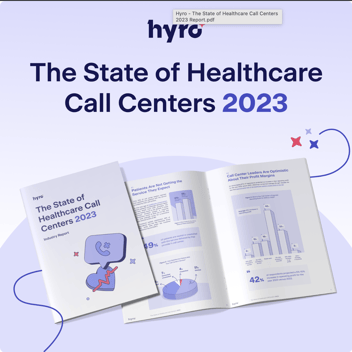Ninety-three percent of healthcare executives say they are ramping up digital transformation with a sense of urgency due to heightened consumer expectations and disruptive innovation, an Accenture survey found. This turn of events is not surprising, since half of consumers say a bad digital experience would ruin their entire experience with a provider.
Yet, how are healthcare organizations prioritizing mobile interactions? It's an interesting question at a time when:
- The average American spends four hours a day on a mobile device.
- Three out of four people use search engines to kickstart their patient journey.
- Six out of 10 Americans want to access their medical records via a mobile app.
Given that mobile is a critical component of any digital strategy, it’s imperative that healthcare organizations lay an optimal foundation for success—especially since consumers also say that positive digital encounters would have a major influence on the overall care experience. An online survey of CHIME members members found that two out of three would rank the importance of mobile to their overall digital strategy as a “4” or “5” on a 5-point scale.
However, the CHIME survey participants also struggle to optimize value from their digital investments—clinically and operationally. Improved access received the highest marks, at 3.33 on a 5-point scale, while impact on the patient experience scored 3.11 out of 5.
How can health systems capture greater value from their digital investments—specifically mobile investments? A Gozio roundtable discussion with healthcare CIOs uncovered three key insights regarding mobile decision making, prioritization and investment in healthcare. Here is a quick recap of those insights. To get the full report with all the details, you can download here.
- Most healthcare CIOs do not have a specific strategy for mobile engagement. Despite the findings of a recent survey of 272 healthcare executives that showed that executives rank the importance of a consumer-facing mobile app as an 8.4 out of 10, the healthcare CIOs surveyed this summer do not have a concrete plan for taking mobile engagement to the next level.
- They focus on efficiency before they focus on the patient experience. For many of these organizations, digital strategy starts with streamlining internal processes and making clinical processes more efficient. Such endeavors help ease increasing demands on staff at a time when more frontline personnel than ever are leaving the field, and administrative pressures increasingly deflate productivity and morale. “We focus on efficiency and effectiveness [of digital tools] before moving toward the patient experience,” one healthcare CIO said.
- They struggle to operationalize mobile services. “What I'm looking for is an operational leader in my organization to say, ‘We want to do this; we must do this,” one healthcare CIO stated. “IT can provide the capabilities for mobile services and engagement, but it needs to be owned by someone, operationally, if it is going to be part of a broader engagement strategy. It can’t be owned by the IT team."
“IT can provide the capabilities for mobile services and engagement, but it needs to be owned by someone, operationally, if it is going to be part of a broader engagement strategy. It can’t be owned by the IT team."
The feedback provided in the focus group and survey shows that CIOs agree with other healthcare leaders that patient engagement is important and there is a need for a cohesive digital strategy to address it. However, many CIOs remain unsure of how to best operationalize it and believe that other functional areas of the health system should lead the effort.
To learn more, download the full report.


